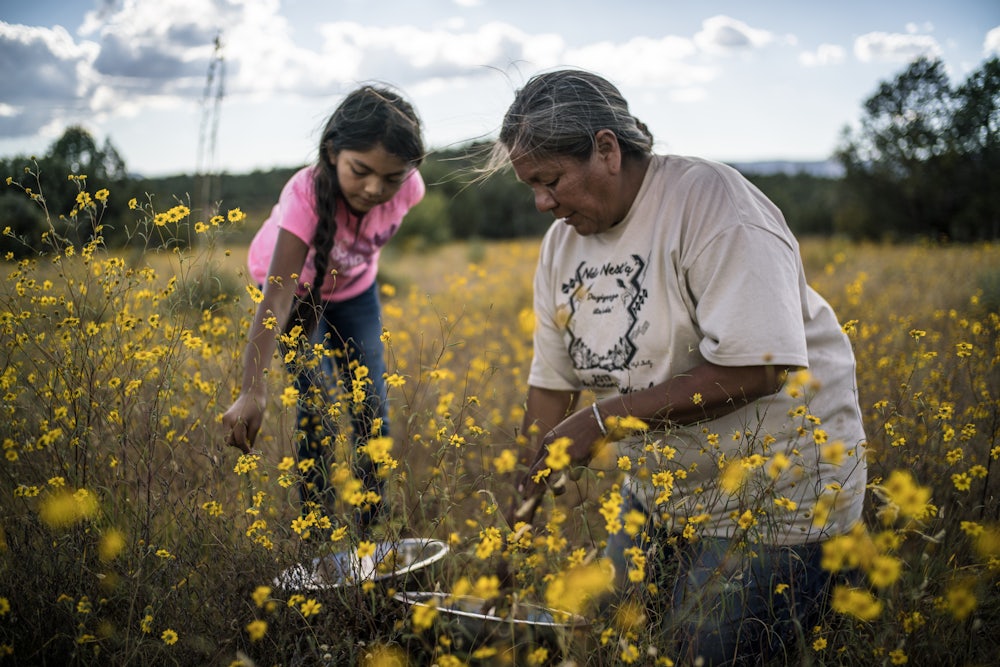It seems fitting that Thanksgiving would be canceled on this, the four-hundredth anniversary of the Mayflower’s voyage. It’s historic disease event piled on top of historic disease event. As David Walbert once put it, when white settlers came to the Americas, their diseases “spread faster than European colonization.” Eventually, “Old World” diseases like smallpox, diphtheria, and tuberculosis killed up to 90 percent of both continents’ Indigenous populations.
Now that we’re in another Big Sickness, it’s a good time to recall that the modern American state was founded on a genocide partly engineered through pandemic. Whether as a handmaiden to ethnic cleansing or as a pandemic whose denial is spawning wildly anti-democratic conspiracy theories, disease has a funny way of turning into a battle fought along political lines, while masquerading as natural disaster.
Like the (real) Thanksgiving story, the Covid-19 pandemic is a good reminder of the way our bodies get drawn into political conflicts. When we hear a term like biopolitics, we don’t think of little annoyances like finding that the cost of your meds has increased by a few cents. But health authorities, insurance companies, and policymakers are constantly calculating and recalculating the relative worth of human life. The bleak new reality of living through a pandemic has highlighted the political divides that attend all bodies living in America.
The parallel between the insidious Thanksgiving myth and broader forms of social injustice emerges clearly in the documentary Gather, which examines the relationship between Native Americans and food. It’s the ideal substitute activity for a quarantined-off Thanksgiving afternoon. It is directed by Sanjay Rawal, a James Beard Award winner and the creator of Food Chains, a David and Goliath story about agribusiness conglomerates versus the Coalition of Immokalee Workers in Florida. Gather is about the meaning and importance of food sovereignty—the idea that people should be in control of the way their food is produced and distributed.
Gather begins by outlining the systematic way European colonization has deprived Indigenous people of access to traditional farming and other food cultivation methods. Coupled with the food deserts affecting many reservations, and in the context of the dearth of social services available to them, the loss of such traditional resources has had a devastating biological impact on communities through illnesses like diabetes and addiction. Investigating the contemporary movement to resist the perpetuation of inequality through food, Rawal then follows five experts in traditional Indigenous food, rotating through their stories.
The youngest is Elsie Dubray, an entrant in the Intel World Science Fair contest with her research into the nutritional value (specifically the lipid structure) of buffalo meat, in contrast to beef. Dubray, now an undergraduate at Stanford, is a member of the Cheyenne River Sioux Nation, and in Gather, she appears outdoors among the buffalo her father raises, marveling at the sound they make all together—a kind of deep, snuffling roar. Dubray’s aim in her undergraduate research into traditional Indigenous diets is fighting diabetes on reservations.
At the other end of the spectrum is the gray-haired Twila Cassadore, an expert in Indigenous seeds and foodstuffs. She guides groups of people, young and old, through the half-hidden riches of the American landscape. She has spent decades interviewing members of the San Carlos Apache, White Mountain Apache, and Yavapai peoples to discover and pass on information about the way they farmed and ate in the time before reservations. She sees things in the undergrowth that other people can’t.
Cassadore is as rigorous as Dubray in her methods, but the difference between them pertains to the different audiences each activist is trying to reach. Dubray is exploiting the means Stanford can offer her to gain prestige and build knowledge from within the scientific community; Cassadore is concentrating her efforts locally and working to reestablish connection between Native American people and the land.
Gather is a very romantic film. But the romance of its production style feels—and this is often not the case in documentary film—firmly rooted in the subject at hand. For example, its cinematography is painterly and gorgeous; plants sway in low light, elderly fingers pluck a half-glimpsed leaf from the earth. Director of photography Renan Ozturk shot Meru (2015), the astonishing story of survival in the Himalayas in which he himself suffered a stroke while mountaineering, and his background in National Geographic work gives the film’s outdoor scenes that near-pastel loveliness. But it’s an appreciation of the American landscape not told from the perspective of the colonizers, for once, and that lends the many-colored landscapes of Gather a thrillingly subversive atmosphere.
As a holiday, Thanksgiving masks all this. The genocide of America’s Indigenous people sometimes seems like a crime so central and so foundational to the nation’s identity that it cannot be discussed productively: On the contrary, that kind of hopeless logic reinforces the myth that the genocide was a total success, that there is no chain of memory stretching back to the time before.
As Gather makes abundantly clear, advocates for food sovereignty are future-oriented individuals with big schemes in place for securing the lives that they want and their communities need. In Gather, physical pathologies are framed in new ways, not as inherent flaws but as the inevitable outcome of violent changes to the way Native communities have been permitted to relate to their own land. It’s an effective way to decentralize the stigma that poverty has attached to certain illnesses (diabetes and alcoholism certainly among them) and instead places human bonds, collective knowledge, and the optimism of annual renewal at the forefront.
